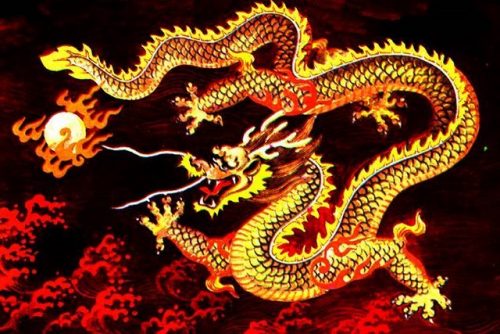China and greatness
Brian Hennessy. An Australian in China. October, 2009
China is carrying a lot of excess baggage on its journey to greatness. This nation’s nagging fear however, is that although it may be big, it suspects that it may never be great. Powerful? Yes. Great? I’m not so sure – let’s wait and see.
China and greatness
Why the West should not worry.
_____________________________________________________________
It’s not time to hit the panic button yet. It is time however, to pause and reflect on the values which have made the West strong, and to ask ourselves whether or not these values have currency today in a global economy whose centre of gravity is tilting toward China.
China is a rising power. A fact that the West is now accommodating itself to. President Obama’s recent visit to China has demonstrated the USA’s political acceptance of this reality. This is good news for China, good news for the citizens of the USA, and good news for smaller nations which can never aspire to great-power status. Good news for everybody in fact.
Will China become great power? Time will tell. But there is a difference between big and great however. Although China can claim to have the oldest continuing civilization in the world, I would argue that this civilization should have more to show for itself after 5000 years of nation-building. You can’t blame everything on those foreign powers which humiliated china in the nineteenth century. China’s own corrupt imperial mandarinate was partly responsible for this debacle.
In my view, the test of a country’s greatness is how much value it has added to the sum total of human achievement and welfare. For example; it could be argued that England’s greatest contribution to humanity was its system of parliamentary democracy and the rule of law. Institutions which continue to contribute positively to the lives of people in other societies long after her decline from colonial great power status.
Another example of greatness could be any one of those smaller nations such as Australia, Canada, and New Zealand, which have built successful multicultural societies out of the ‘tired, poor, and dispossessed’ who sought a second chance in a foreign country somewhere across the sea. The children of these immigrant peoples are now integrated into their host nations, and are contributing to the welfare of all members of their new society. Some of them are now leaders of their adopted countries. This could never happen in culturally chauvinistic China.
A more deserving benchmark for success is China’s recent long march from poverty towards developed nation status. Respect for China’s achievements in this regard is freely given. China is now taking its rightful place as a major economic power, and her influence on global affairs is set to increase in proportion to her growing GDP. Not before time. China’s centralised control of its economic levers has arguably saved a greedy capitalist world from itself. Give credit where it is due.
So China is finally reaching its potential. With 20% of the world’s population, and with considerable intellectual and material resources, it’s about time that she did. Good for her. But what took her so long? That is a question China should answer for herself.
A few more words about greatness: I would argue that although China may become a super- power one day, it is possible that she may not achieve the greatness which she aspires to. Greatness being defined here as that quality of national leadership which other nations will want to emulate – for their own good, and for the intellectual, material, and spiritual welfare of their citizens.
So what can China offer the world, apart from materialism, that the rest of the world would want to copy? Again, this is a question that China should ask herself.
This is a society in transition from the dead ideology of Communism to a more dynamic Socialism with Chinese Characteristics. A system where the state still controls the means of production one way or another in tandem with market forces. A nice way of saying that the state can manipulate market forces whenever it deems necessary.
My gut feeling is that although the Beijing government recognises the tide of history and would like to allow more personal freedom, it fears the consequences of doing so. That is; a loss of power and control, and ultimately perhaps, legitimacy. A nightmare scenario for the central government in Beijing.
Conundrum: Although China craves the respect of the world, the Beijing power elite will never voluntarily create the conditions which would allow modern China to mature into a truly great power. What a pity – for China.
Perhaps China needs to lighten up a little and not take herself so seriously.
And the West should have more faith in itself and its enduring institutions and values (with the exception of Wall St perhaps?) by not spending so much time worrying about China’s rise. The West has its own problems to worry about (Wall St again!).
Self-doubting western societies should revisit a narrative of their own cultural history. From Greece, to Europe, to the New World and beyond. A never-ending-story of intellectual inquiry, scientific method, and the release of individual creative energy. The fundamentals of healthy, productive societies anywhere.
Why worry?
–oo0oo–
Brian is a “zhengyou”, a friend of china who: “sees beyond immediate benefit to a broader and firm basis for continuing a profound and sincere friendship”. This is an old Chinese tradition.
. .

